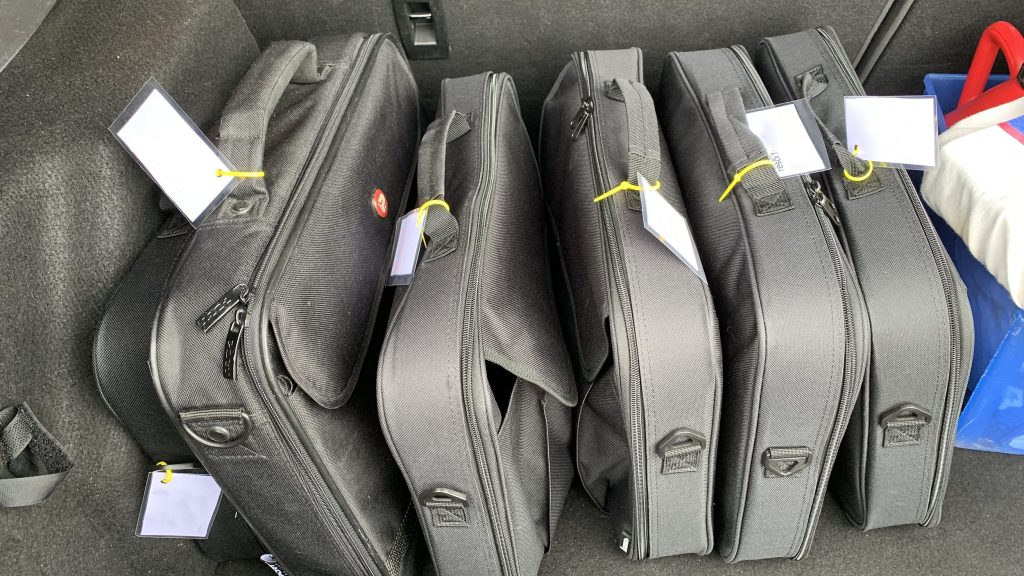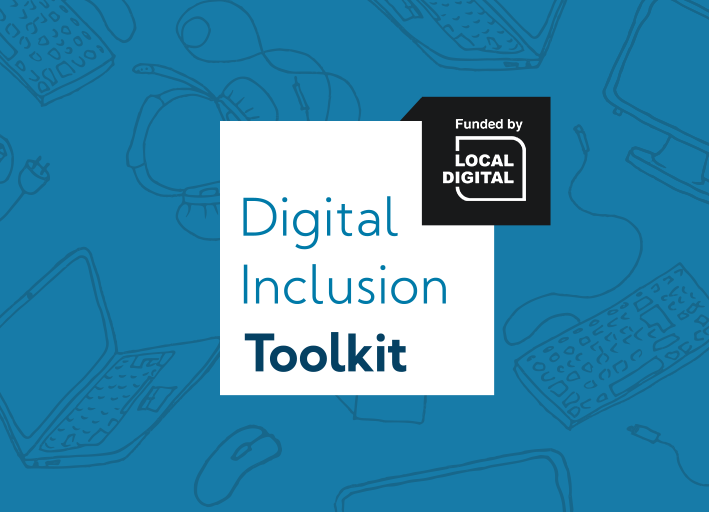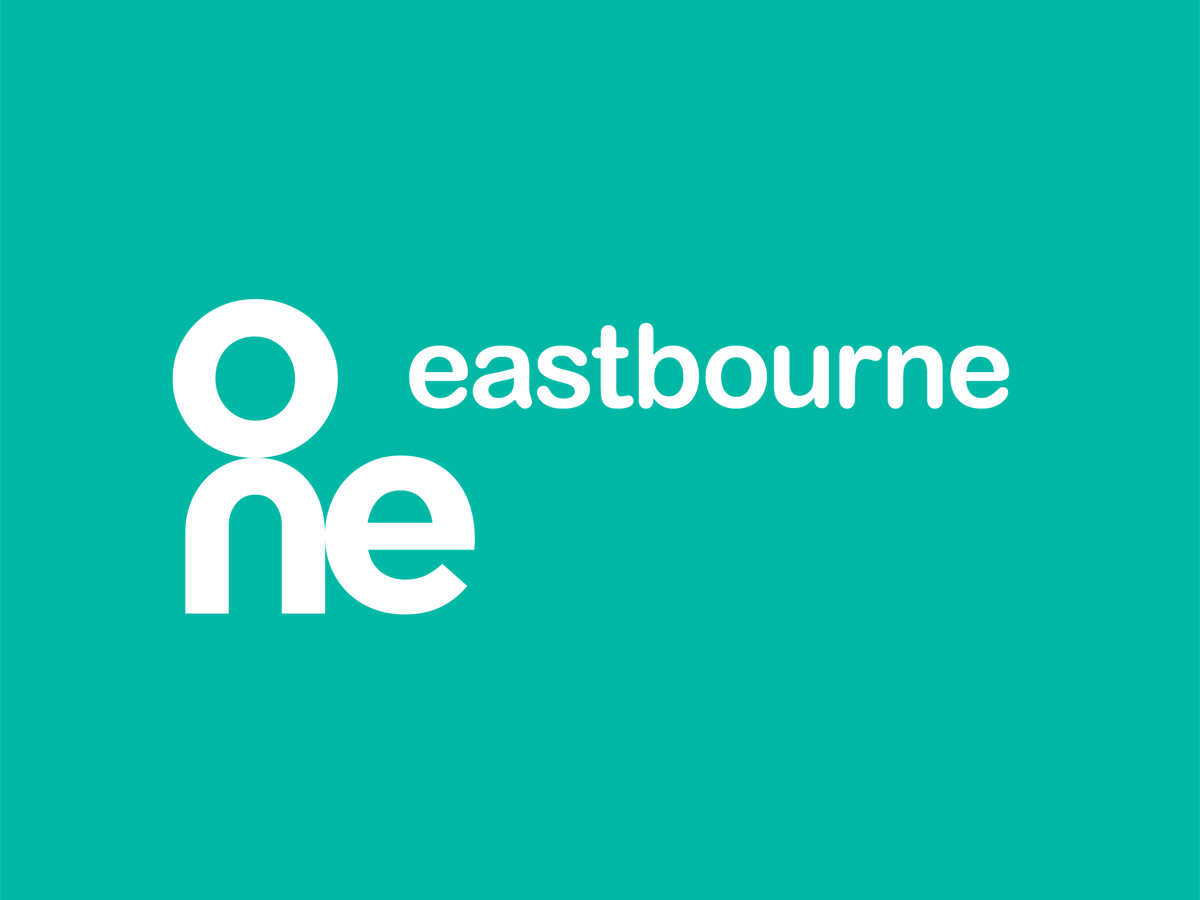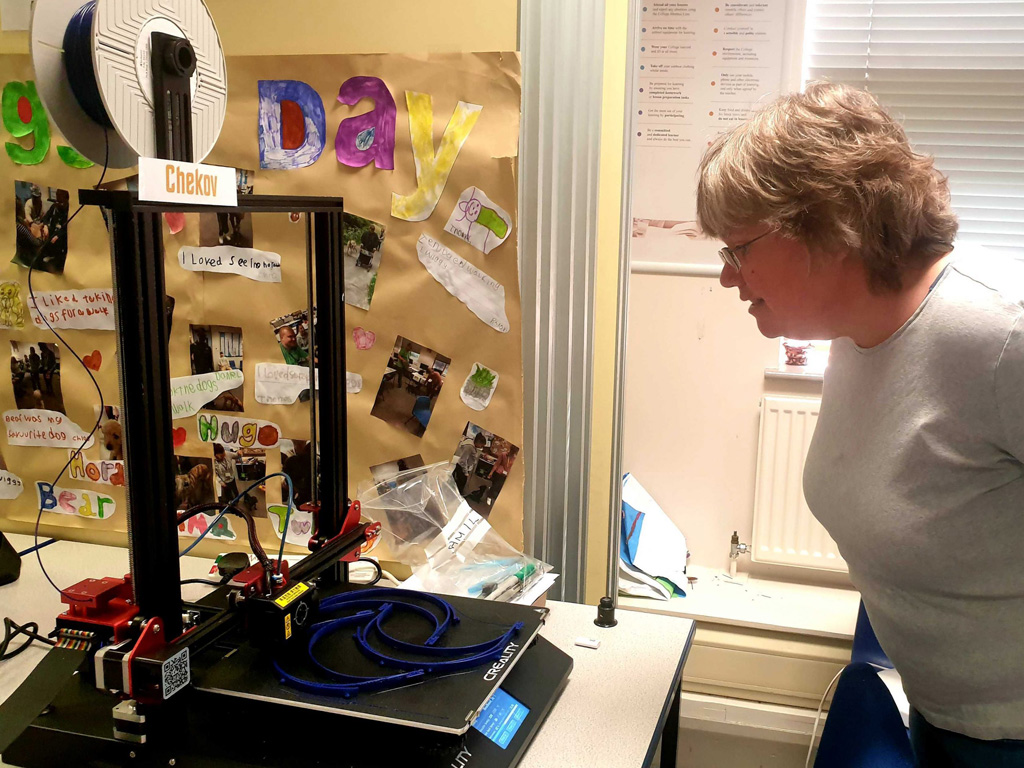This blog post is the fourth in a series thinking about a digital strategy for a seaside town. We’re based in Eastbourne, East Sussex, and it draws from our work helping people get online during the Covid-19 pandemic.
TechResort has been talking about the digital divide since we founded in 2013. Sadly, it needed a pandemic for this issue to be taken seriously. As shops, schools and offices went online, thousands of people in our town were left behind.
Our army of Elves leapt into action, refurbishing devices for people in need, 3D printing PPE, and even launching an online marketplace for local businesses to sell online.
For better or worse, we’re now living with Covid-19. A kind of normality has resumed. But the seismic shift to digital is permanent – society has realised that more can be done remotely and online, and there’s no going back.
We have a plan
There’s a lot that needs fixing, but there’s no need for us to start from scratch. Plenty of good work has been done in Eastbourne and elsewhere, and our focus should be about comprehensive and sustainable provision. In other words, we to provide a lot more help at the point of need, and that help needs to stick around for the long term.
In June, the Digital Poverty Alliance launched a landmark document, The Digital Poverty Evidence Review (you need to provide an email to download it). It highlights how society’s use of technology has marginalised millions of people, and proposes sensible steps to reverse the trend.
We love this document, and keep returning to it. But at 90 pages with appendices, it’s a long read. Having said that, every organisation providing services to citizens should read its sections on Myths (pages 21-22) and Policy Principles (pages 28-31).
To give you a flavour, here are its 5 policy principles:
- Digital is a basic right. Digital is now an essential utility – and access to it should be treated as such
- Accessing key public services online, like social security and
healthcare, must be simple, safe, and meet everyone’s needs - Digital should fit into people’s lives, not be an additional burden — particularly the most disadvantaged
- Digital skills should be fundamental to education and training
throughout life. Support must be provided to trusted intermediaries who have a key role in providing access to digital - There must be cross-sector efforts to provide free and open evidence on digital exclusion
Each of the principles suggests places to start. They’re great, and we’ll expand on some of them below.
Follow the leaders
Handily, a few other places in the UK are doing digital inclusion really well and we can learn a lot from them. TechResort partners with one of the best, 100% Digital Leeds, building the Digital Inclusion Toolkit. (This website is aimed at councils across the UK, who frequently lead on digital inclusion work for their area, but there’s useful advice for everyone).
In our team meetings with Leeds, we marvel at the work they’ve done and wish that the same could happen here. Locally we’ve started calling this collection of ideas a ‘digital skills safety net’.
How a digital skills safety net could work
Devices, connectivity and skills training for people in need
There are typically 3 things stopping people getting online:
- devices (ideally a laptop, but could be a tablet or phone)
- connectivity (so home broadband, reliable access in a public place, or sufficient phone data)
- confidence and motivation (some are scared by the internet, and others not interested, and we need to tackle both)
TechResort has taken on these challenges directly, by repurposing laptops, securing phone data from the National Data Bank, and running drop-in sessions twice a week at our new HQ.
Other local organisations have been doing a great job too. Tubbs Computers is providing refurbished devices to people in need, and there are regular drop-in sessions at the Seaside Community Hub. The Library’s IT for You service is brilliant.
Demand is growing, and we don’t have enough capacity between us. More people and organisations need to donate devices, more skills sessions need to be offered, and more volunteers need to join us.
The cost of connectivity for people on low incomes is perhaps the biggest problem to tackle. They’re often accessing essential services on mobile phones, and can quickly run out of data.
Those on benefits can get discounted broadband through Ofcom’s Social Tariff scheme. Meanwhile, there’s a growing push for phone companies to provide access to websites with gov.uk and nhs.uk domains for free (ie accessing them doesn’t eat your phone data). We’re lending our support.
Finally, people need to realise that this work costs money. TechResort is constantly fundraising to keep our digital inclusion projects going, while service providers bank the dividends from moving online. We know other organisations are frantically fundraising too. The public and private sectors need to step up and help cover these costs.
Support for front line organisations
Yesterday we attended the Eastbourne Cost of Living Emergency Summit, and met organisations who’re providing vital help on the front line. We heard about personal insolvency cases going through the roof, while benefits are left unclaimed – either they’re not well known, or the application process is online and poorly designed.
So much of our lives are now online, and foodbanks, schools, GP surgeries, pharmacies, Citizens Advice and others are having to deal with the fall out.
As an example of what’s possible, here’s how TechResort has helped Hastings Citizens Advice Bureau:
- trained its advisors to better spot those who need help with digital skills or access
- boosted confidence and know how for advisors to fix quick digital problems on the spot (for example, they could help a client if they have a quick question about the Universal Credit application, which is online only)
- provided an easy way for them to refer clients to us for more support, including us running drop-ins at their centre. It’s important that we meet people where they are, rather than requiring them to travel. Their needs might be urgent, and transport options may be patchy or unaffordable
(Sometimes a client might have advanced digital skills, and they could be signposted to organisations helping people into work, or to education and training providers).
By working together, Hastings CAB and TechResort have made a big difference to people’s lives. With more funding, TechResort and organisations like us could support more front line services. If you’re a front line Eastbourne organisation, please get in touch about your needs. Maybe there’s a few funding bids we could write together?
Start small and grow
So that’s how a digital skills safety net could work – a comprehensive set of front line organisations who can spot digital skills needs that they either fix themselves, or refer to a specialist who can help.
We don’t have to imagine this as 100% Digital Leeds has a safety net up and running. In their model, they don’t help citizens directly. Instead they enable around 400 organisations across the city to do just that. They’ve trained over 5000 staff in those teams, and they engage with tens of thousands of people every day.
Leeds’ work is hugely impressive, and if we can manage a fraction of that we’ll be well on our way. We should start small and grow as we discover new needs. It’ll mean we can offer help immediately – and many people need just that.
Life long learning
Technology presents a moving target. It’s constantly changing, sometimes getting easier to use, and sometimes harder. Either way, we need to cope with changes, and learn new skills. I learn new things every day.
Our education system, front line services and specialists like TechResort all need to respond to this. We’re doing what we can and would like to do more. Perhaps this is a separate blog post!
So who’s with us?
This is a puzzle, and we have many of the pieces between us. TechResort would like to work with fellow organisations and our councils to tackle the digital inclusion crisis in our town. We’ll ultimately need a lot more funding across our organisations, but we’ll see that investment rewarded with more funding brought in, people pulling together and targeting help more effectively.
The internet is huge part of our lives. As I saw at yesterday’s Cost of Living Summit, a digital skills safety net would have a positive impact on pretty much everything discussed, from health outcomes to transport and economic recovery.
If you’d like to help, or have questions, please get in touch.
You can read more about our emerging digital strategy here.






